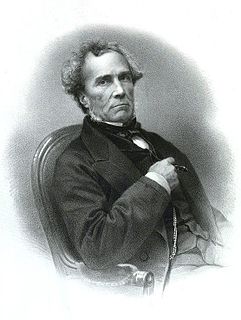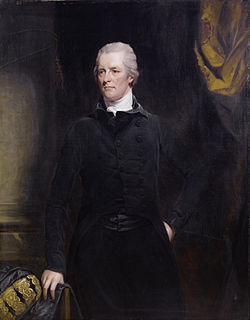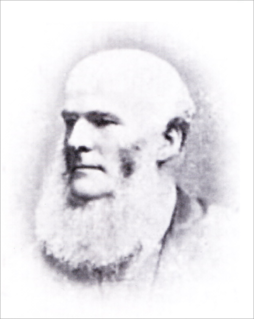A Quote by Eliza Haywood
The Unhappy may, possibly, by indulging Thought, hit on some lucky Stratagem for the Relief of his Misfortunes, and the Happy may be infinitely more so by contemplating on his Condition.
Related Quotes
Theocracy is the worst of all governments. If we must have a tyrant, a robber baron is far better than an inquisitor. The baron's cruelty may sometimes sleep, his cupidity at some point be sated; and since he dimly knows he is doing wrong he may possibly repent. But the inquisitor who mistakes his own cruelty and lust of power and fear for the voice of Heaven will torment us infinitely because he torments us with the approval of his own conscience and his better impulses appear to him as temptations.
He is not famous. It may be that he never will be. It may be that when his life at last comes to an end he will leave no more trace of his sojourn on earth than a stone thrown into a river leaves on the surface of the water. But it may be that the way of life that he has chosen for himself and the peculiar strength and sweetness of his character may have an ever-growing influence over his fellow men so that, long after his death perhaps, it may be realized that there lived in this age a very remarkable creature.
So, then, the best of the historian is subject to the poet; for whatsoever action or faction, whatsoever counsel, policy, or war-stratagem the historian is bound to recite, that may the poet, if he list, with his imitation make his own, beautifying it both for further teaching and more delighting, as it pleaseth him; having all, from Dante’s Heaven to his Hell, under the authority of his pen.
I have seen the Indian in his forests, and the Negro in his chains, and thought, as I contemplated their pitiable condition, that I saw the very extreme of human wretchedness; but I did not then know the condition of unfortunate Ireland...In all countries, more or less, paupers may be discovered; but an entire nation of paupers is what was never seen until it was shown in Ireland.
The Jews would not willingly tread upon the smallest piece of paper in their way, but took it up; for possibly, they say, the name of God may be on it. Though there was a little superstition in this, yet truly there is nothing but good religion in it, if we apply it to men. Trample not on any; there may be some work of grace there, that thou knowest not of. The name of God may be written upon that soul thou treadest on; it may be a soul that Christ thought so much of, as to give His precious blood for it; therefore despise it not.
What makes a free thinker is not his beliefs, but the way in which he holds them. If he holds them because his elders told him they were true when he was young, or if he holds them because if he did not he would be unhappy, his thought is not free; but if he holds them because, after careful thought, he finds a balance in their favor, then his thought is free, however odd his conclusions may seem.
We may not know when or how the Lord's answers will be given, but in His time and His way, I testify, His answers will come. For some answers we may have to wait until the hereafter. This may be true for some promises in our patriarchal blessings and for some blessings for family members. Let us not give up on the Lord. His blessings are eternal, not temporary.
No thought, no idea, can possibly be conveyed as an idea from one person to another. When it is told it is to the one to whom it is told another fact, not an idea. The communication may stimulate the other person to realize the question for himself and to think out a like idea, or it may smother his intellectual interest and suppress his dawning effort at thought. But what he directly gets cannot be an idea. Only by wrestling with the conditions of the problem at first hand, seeking and finding his own way out, does he think.
May we all be in such a condition of soul, such an attitude of heart as will fit us for any little work in which our gracious Lord may be pleased to use us- not seeking a place for ourselves, but lovingly serving all. The Lord, in His great mercy, grant that thus it may be, with all His beloved people!
When we think carefully, we see that the brief elation we experience when appeasing sensual impulses may not be very different from what the drug addict feels when indulging his or her habit. Temporary relief is soon followed by a craving for more. And in just the same way that taking drugs in the end only causes trouble, so, too, does much of what we undertake to fulfill our immediate sensory desires.
Whatever man may stand, whatever he may do, to whatever he may apply his hand - in agriculture, in commerce, and in industry, or his mind, in the world of art, and science - he is, in whatsoever it may be, constantly standing before the face of God. He is employed in the service of his God. He has strictly to obey his God. And above all, he has to aim at the glory of his God.




































